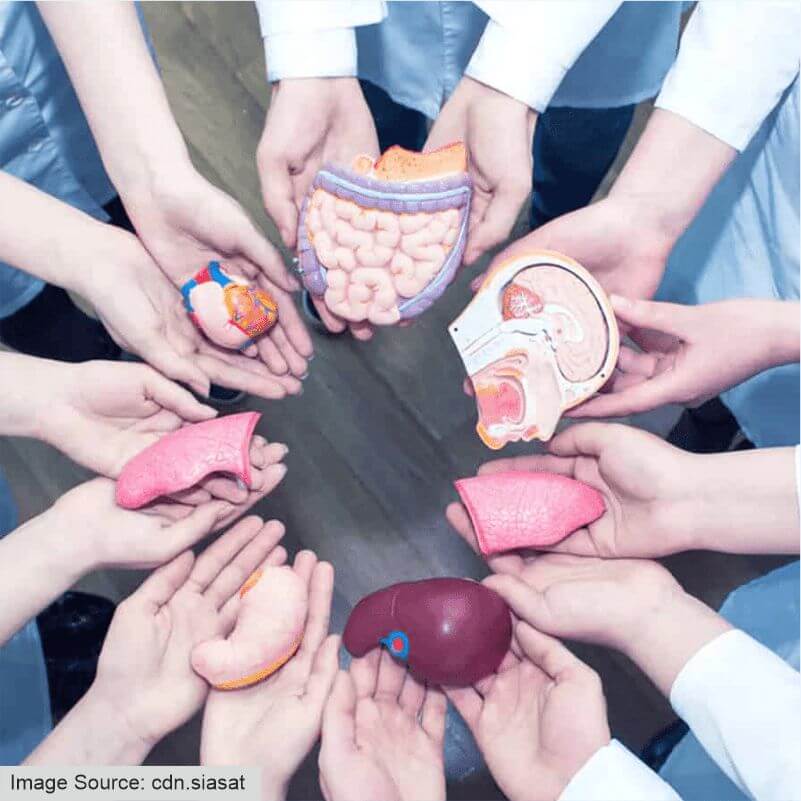A single organ donor can save the lives of eight people. However, due to a lot of myths and superstitions, organ donation isn’t taken seriously by the citizens of India. Every year, 200,000 corneal donations are required and 500,000 people are in need of a transplant every year. It is also said that 586 airbuses can be filled with people awaiting organ transplantation.
However, the rate of people willing to make a donation is very low, India’s rate of organ donation is 0.86 per million. Compare that to the USA and France, where the rate of donation is 31.96 per million and 46.9 per million respectively.
While cultural superstitions have a role to play in these low figures, there is also a lack of awareness. According to a study, only 70% of people were aware that organs can be donated after death. It is also to be noted that many hospitals are not equipped to carry out donations. Only 250 hospitals have registered with India’s National Organ and Tissue Transplant Organization (NOTTO). So, even if people sign up for organ donation, many would not be able to, if they met their demise in an area that doesn’t have a well-equipped hospital.
In order to increase awareness about organ donation, 13th August has been annually celebrated as World Organ Donation Day.
So, to celebrate World Organ Donation Day, we are going to answer some frequently asked questions about organ donation.

- What organs and tissues can be donated?
- Who can be an organ donor?
- Would my family have to pay for my organ donation?
- Does Religion Support Organ Donation?
Answer: The heart, Liver, Kidneys, Lungs, Pancreas, Cornea, Skin, Heart Valves, Bones and Tendons can be donated.
In the cases of brain dead (when a person is on artificial life support), or a person meeting their demise through cardiac arrest, the organs can be donated.
You can pledge your organs by signing and carrying a donor card. However, the consent of the family is essential when it comes to donation.
Donor Card is essential as they act as a bridge of communication between a family and a doctor. As most Indians don’t opt for organ donation, many doctors don’t bring up the topic out of respect. But by carrying a donor card, the doctors might feel confident enough to approach the family.
The family is not going to be charged for organ donation. The hospital will only charge the family for the final efforts in saving your life.
There is little to no evidence to suggest that major religions prohibit organ donation. Almost all faiths, allow people to donate their organs.
Child Help Foundation understands the crisis in organ transplantation. Hence, it has conducted sessions in the past to encourage people to opt for organ donation. In these sessions, many people pledged to donate their organs.
Thank you for taking the time to read the article. Please share this with all your friends and family members to make them aware of organ donation.
